Want to swap writing strategies? We’re starting a discussion group on scholarly writing. Join us! Start a thread!
As a former journalist, assistant professor, and seasoned dissertation-writing-workshop coach at New York University, I can promise you there is only one fail-safe method, one secret, one guaranteed trick that you need in order to finish your dissertation: Write.
That’s it. Seriously. I hate to be the bearer of bad news, but there are no magical shortcuts to the production of prose, academic or otherwise. If you want to complete your dissertation in a reasonable amount of time—and trust me, you do—you must learn to prioritize the act of writing itself and write every day. Writing must become a non-negotiable part of your daily routine.
Here’s the basic, scalable program that I recommend: Sit your butt down in a chair, preferably in a quiet and distraction-free room. Disable your internet and turn your phone on silent. Come into your writing space having already done the research you need for that day’s writing task. You will not be researching or looking anything up during your writing time (research and editing are discrete tasks, believe it or not, and should be done in separate blocks).
Don’t do “poms”—timed sessions of 25 minutes with five-minute breaks in between—for writing. They work well for other discrete tasks, like research or formatting or getting your bibliography together, but not here. Instead, try to write for a longer, uninterrupted time. In NYU’s workshops, we write for 50 minutes straight, with 10-minute breaks, for 4 hours daily. That might not be feasible if you work or have young children, but plan on writing five days a week, no matter what, for a minimum of two hours each day.
It’s doable, I promise.
Here’s the rationale for writing every day: Writing is thinking. It takes time and it’s supposed to be challenging. The biggest mistake I’ve seen most graduate students make is to mythologize what I call “the moment of genius.” Because writing is thinking, brilliant thoughts do not just appear on the page after long hours of arduous musing on a subject. In my experience, the best ideas almost always come about through the act of writing itself—usually just at that moment when you’ve run out of steam and are staring down a seemingly intractable problem, desperately wanting to quit. These are the breakthrough moments. When you’re writing a dissertation, one of the most difficult intellectual tasks a person can do, commitment to the writing process is far more important than genius. If the smartest person in the world cannot learn to write, then she won’t be a successful academic. Period.
In the past year, I’ve coached over 60 Ph.D. candidates from diverse departments—from computer science to French literature, from anthropology to political science. And despite the differences in discipline and style of writing, the process and my advice remain the same. Everyone struggles with similar technical and emotional issues: procrastination, distraction, anxiety, structuring an argument, finding their voice, integrating theory and evidence. It’s very hard work, this writing-your-dissertation thing.

The trick is to not make it even harder by avoiding the work itself.
The greatest obstacle to any dissertation writer, by far, is the all-too-common tendency (conscious or not) to try to avoid the negative feelings associated with the difficult stages of the writing process. If you make writing a part of your work-week routine, there will be good and bad days. On the good days, the prose will flow out of you at a rate that you didn’t think was possible. Or you’ll finally figure out how you want to argue your main point. Or you’ll realize that what you thought was one chapter is actually two or three different ones. On the bad days, nothing that you write will seem good enough. You’ll hit the backspace and delete keys so much that they’ll start sticking. You’ll move the same paragraph five times before you delete it out of frustration. The trick is to go with the ebb and flow of writing, to ride out the bad days.
I often advise the students in my workshops to “get comfortable being uncomfortable.” Very often in the writing process, you will feel shitty. You will write shitty first drafts. You will wrangle with disparate sources, gargantuan amounts of data, and difficult theoretical concepts. You will often feel lost and frustrated and tired—uncomfortable. The successful writer knows that feeling lost, frustrated, and tired is just a part of the process of coming up with something great. Writing is thinking, and good ideas take time. There are bound to be a few false starts and dead ends along the way. If you feel shitty about the writing and force yourself to write anyway, you will not only finish your dissertation, you will allow yourself the opportunity to work through complicated arguments and say something interesting or even something pretty great.
All professional writers know that good books and interesting articles are the product of several drafts. So is your dissertation. In fact, the dissertation is better thought of as the lousy first draft of an eventual book. No one but you expects your dissertation to be perfect. What advisors want to see is honest effort and interesting thinking on the page. Trust me, most of us remember all too well what our dissertations were like (mostly terrible: just ask your advisor if you can read a copy of hers!), and we can empathize with your struggles. But we also know that the only path to a completed dissertation and a blossoming career is through writing—putting ideas down on a page, and wrestling them into shape.
And, finally, I’d advise anyone writing a dissertation to shift her thinking. You are no longer simply a graduate student; you are a Ph.D. candidate. As such, writing is part of your job. In fact, it’s the most important thing you can do for yourself and for your future. Get into the habit of daily writing now and you will have a prolific career. But you have to start today. Right now. So stop reading this and get to work.
Want to swap strategies and share insights with other academics?
Sign up for Vitae and join the conversation in one of our new discussion groups: Adjunct Life. Flexible Academics. On Scholarly Writing. or Advising in Academia .


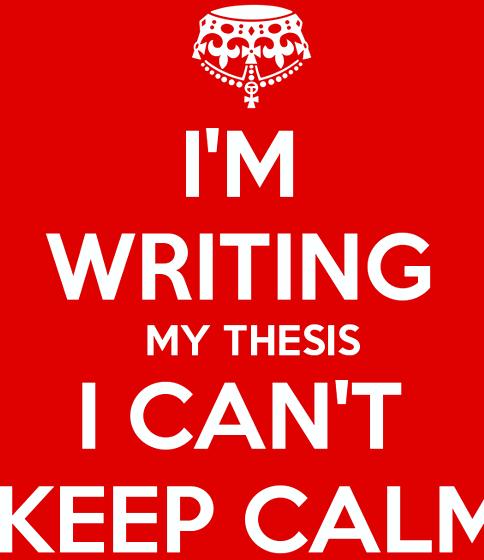



 Phd dissertation defense presentation ppt des
Phd dissertation defense presentation ppt des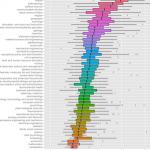 Dissertation phd length of time
Dissertation phd length of time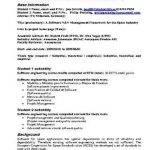 Successful dissertations and theses pdf writer
Successful dissertations and theses pdf writer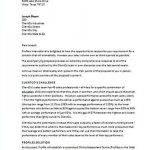 Dissertation proposal sample business proposal
Dissertation proposal sample business proposal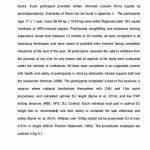 Post activation potentiation dissertation proposal
Post activation potentiation dissertation proposal






